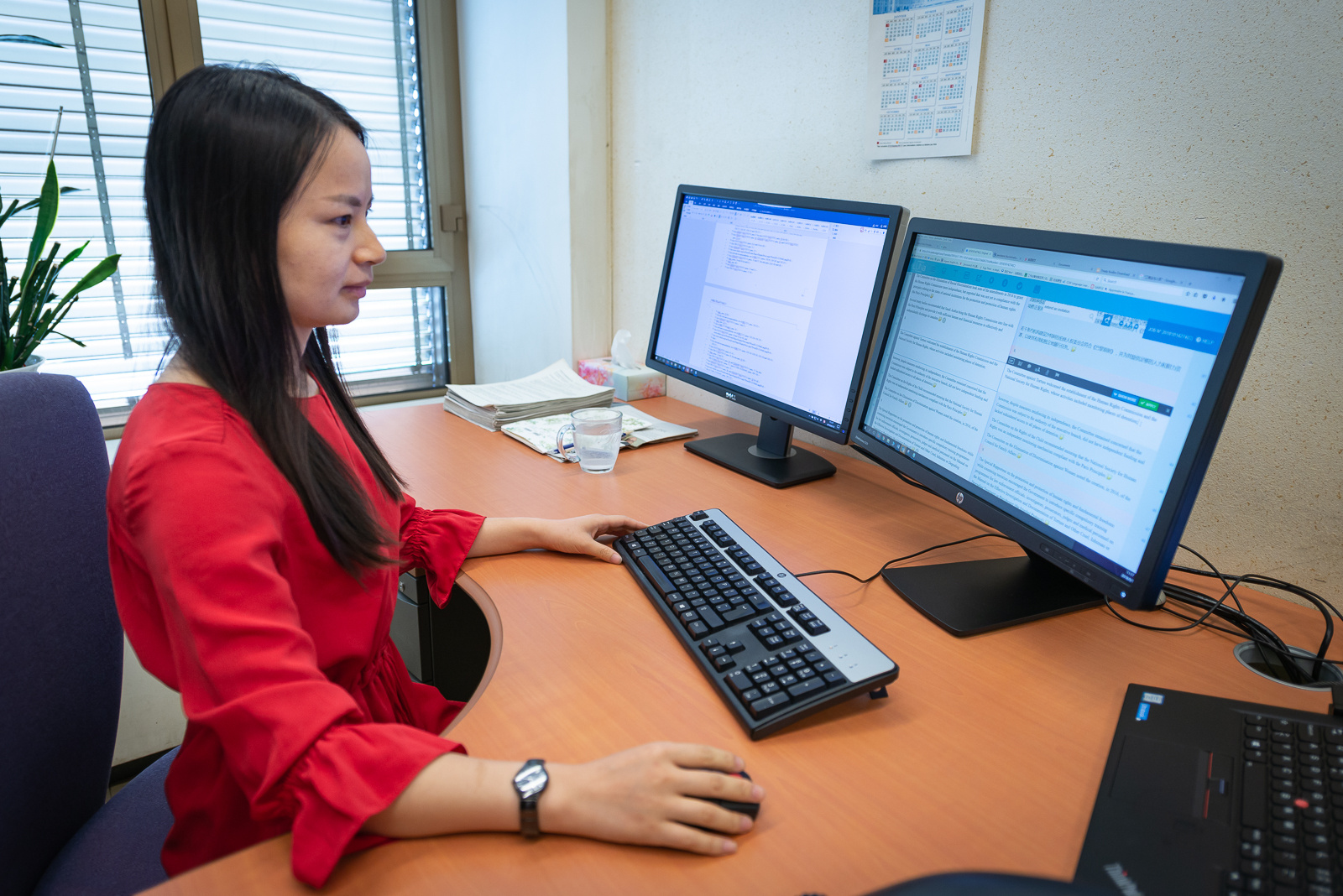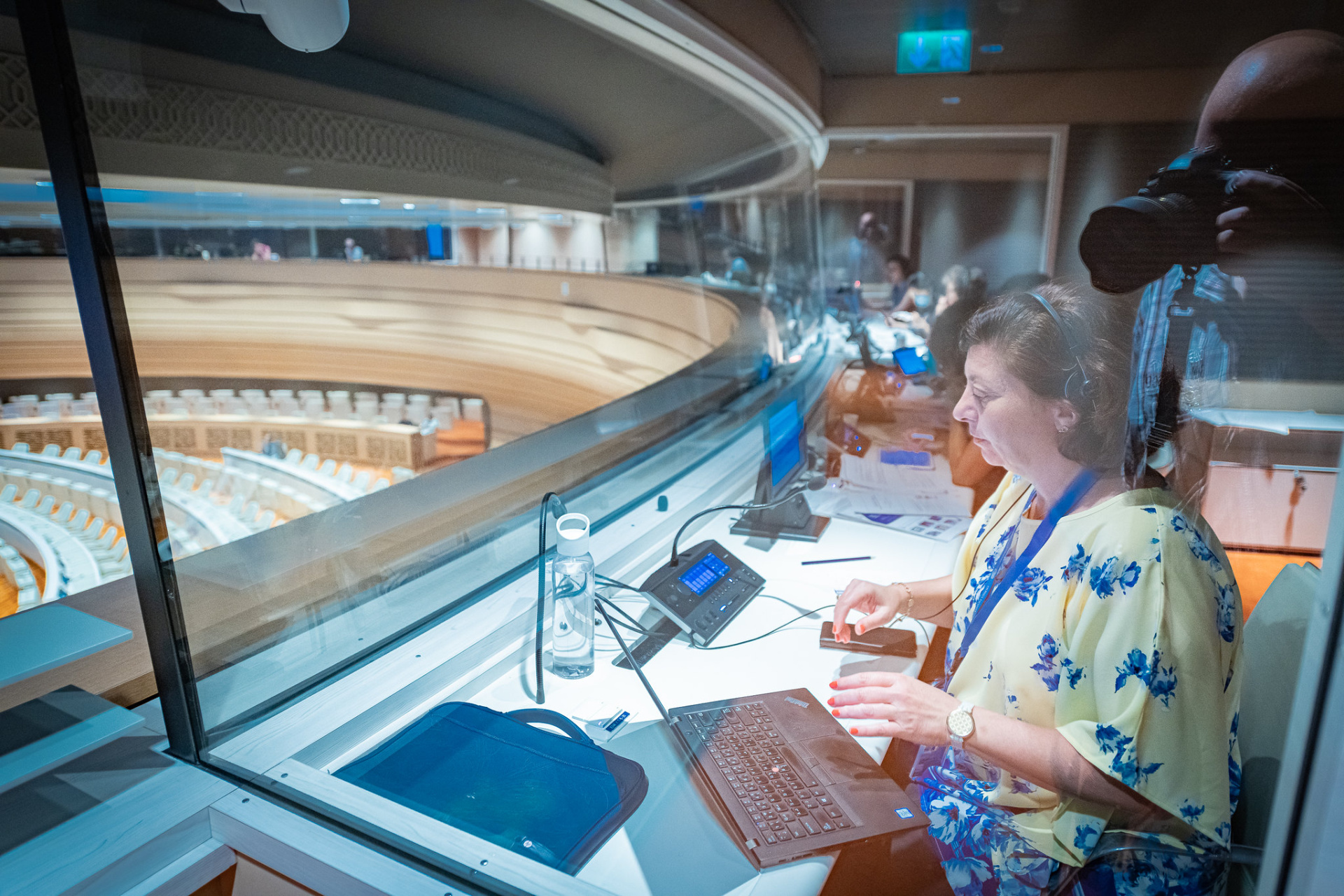
Breadcrumb
Translation and Editing

Language professionals at UN Geneva actively support the intergovernmental process. They facilitate communication between stakeholders through the written word, deploying their knowledge of languages and their understanding of complex subjects, and using a range of tools to produce documents of high quality.
Editors and proofreaders bring complex and politically sensitive parliamentary documents and publications in conformity with United Nations editorial standards. Working to strict deadlines, the editors ensure that the documents and publications are correct, clear, consistent, logical and readily understandable to an international readership, as well as translatable. They make sure that established terminology is used and that the tone and register are appropriate.
Translators render in their main language information drafted in another. Given the wide variety of subjects covered at UN Geneva, which range from human rights and the codification of international law to statistics and from trade to climate change, they must constantly rely on their intellectual curiosity, analytical skills and research techniques, in addition to their general knowledge and mastery of several languages, to produce translations that are faithful, in meaning and style, to the author’s intent. Together with their freelance colleagues, about 170 translators on the permanent staff at UN Geneva translate some 80 million words a year. With the help of terminologists, translators also create terminology in all subjects covered at UN Geneva and share it with one another, with other language professionals, with Member States and with the public at large.
Précis-writers in the English Translation Sections support the work of clients including the human rights treaty bodies based in Geneva, the Human Rights Council, the disarmament bodies and the International Law Commission. Précis-writers work out of all the official languages and are responsible for producing accurate and enduring records of particular mandated meetings held at UN Geneva.
Translation Tools and Resources
Interpretation
Interpretation services at UN Geneva comprise the six official United Nations languages - Arabic, Chinese, English, French, Russian, and Spanish, as well as International and National Sign languages - and are staffed by a total of 100 interpreters. Simultaneous interpretation is provided to an average of 2,700 meetings of United Nations Conferences and bodies per year at Geneva Headquarters and in the field.
A conference interpreter is a professional language and communication expert who works in multilingual meetings and simultaneously renders a message from one language into another, naturally and fluently, adopting the delivery, tone and convictions of the speaker. To accurately render not only the words, but also the spirit of what is said, it is important that interpreters have a first-hand feel of what is happening in the room and a direct view of the speaker.
The work of a conference interpreter is an oral cerebral exercise which is quite distinct from written translation and requires different training and qualifications. Interpreters' work is subject to constant, immediate and very public scrutiny; no supervisory review or revision is possible before their “product” is delivered.
The ability to interpret is a skill many claim but few truly possess. Consider the process of simultaneous interpretation: interpreters listen to the speaker, understand the message and convert it into another language, render the converted message to the audience, monitor their output to ensure accurate and elegant delivery, all the while absorbing the next part of the speech. Consequently, they must exercise great concentration while working under constant pressure in order to maintain a high standard of split-second accuracy and be able to assimilate a broad range of subjects and specialized terminology.
International conferences are attended by people who not only speak different languages, but also come from different backgrounds and cultures, and so interpreters provide bridges between varying ways of thinking, worldviews and cultural approaches.

